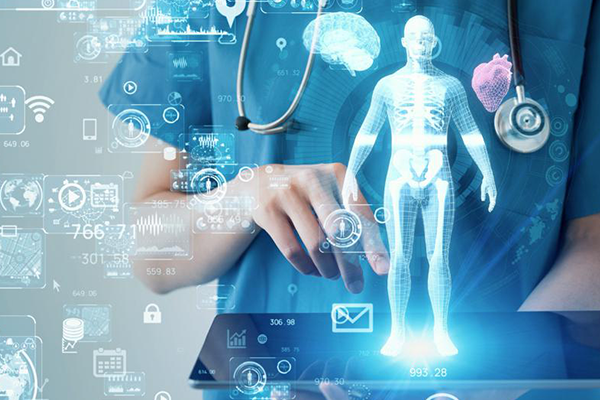
Introduction
Artificial Intelligence (AI) is not just the stuff of science fiction anymore; it’s a real game-changer in the world of healthcare. The intersection of AI and medicine has given rise to a technological revolution that is transforming the way we approach healthcare delivery, diagnosis, treatment, and research. In this blog, we will explore how AI is revolutionizing the field of medicine, with a focus on the incredible potential it holds to improve patient care, enhance medical research, and streamline healthcare processes.
Enhanced Disease Diagnosis
AI has become a powerful tool for diagnosing diseases, often outperforming human physicians in specific tasks. Machine learning algorithms can analyze vast amounts of patient data, including medical records, images, and test results, to identify patterns and markers that are indicative of diseases such as cancer, diabetes, and heart conditions. This not only leads to earlier and more accurate diagnoses but also allows for personalized treatment plans.
Personalized Treatment Plans
Personalized medicine, tailored to an individual’s unique genetic makeup and health history, is at the forefront of healthcare. AI can analyze a patient’s genetic data to identify potential risks and suggest personalized treatment options. This approach leads to more effective treatments, fewer adverse effects, and improved patient outcomes.
Drug Discovery and Development
The drug discovery process is notoriously time-consuming and costly. AI has accelerated this process by analyzing massive datasets and predicting potential drug candidates. Machine learning algorithms can predict the effectiveness of drugs, optimize molecular structures, and identify possible side effects. This not only speeds up drug development but also makes it more cost-effective.
Medical Imaging
AI has made significant strides in the field of medical imaging, from X-rays and MRIs to CT scans and ultrasounds. AI-powered algorithms can assist radiologists by quickly and accurately identifying anomalies in images. This not only expedites the diagnostic process but also reduces the likelihood of human error.
Predictive Analytics
AI can use historical patient data to predict disease outbreaks and healthcare trends. In scenarios like pandemics, AI can help in resource allocation, tracking the spread of diseases, and making informed decisions to limit the impact on public health. Predictive analytics also play a crucial role in optimizing hospital operations, reducing wait times, and managing patient flow.
Virtual Health Assistants
Chatbots and virtual health assistants powered by AI are increasingly being used to provide healthcare information, answer patient queries, and even help with medication management. These virtual assistants are available 24/7, providing round-the-clock support for patients.
Remote Patient Monitoring
AI-enabled wearables and remote monitoring devices allow healthcare providers to track patients’ vital signs, medication adherence, and overall health in real-time. This technology can be especially beneficial for patients with chronic conditions, as it enables early intervention and reduces the need for frequent in-person visits.
Administrative Efficiency
Healthcare organizations are using AI to streamline administrative tasks, from appointment scheduling to insurance claims processing. By automating routine tasks, healthcare providers can allocate more time and resources to patient care.
Reducing Healthcare Costs
By improving efficiency, enhancing diagnosis and treatment, and optimizing resource allocation, AI has the potential to reduce the overall cost of healthcare. This can make quality healthcare more accessible and affordable for a broader population.
Ethical Considerations and Data Privacy
While AI holds immense promise, it also raises ethical concerns, particularly around data privacy and bias in algorithms. Healthcare organizations must prioritize patient data security and transparency in AI decision-making processes.
Conclusion
Artificial Intelligence is not merely a buzzword in healthcare; it’s a transformative force that is revolutionizing the field of medicine. From enhancing disease diagnosis and personalizing treatment plans to accelerating drug discovery and improving medical imaging, AI is changing the way we approach healthcare at every level. The impact of AI in healthcare is undeniable, and its potential to save lives, reduce costs, and enhance patient outcomes is truly remarkable. As AI continues to evolve, we can expect even more innovations that will reshape the future of medicine for the better. It’s an exciting time for both healthcare professionals and patients as we witness the remarkable fusion of technology and medicine in the AI revolution.